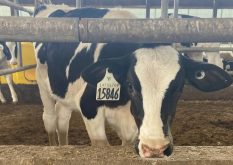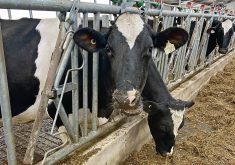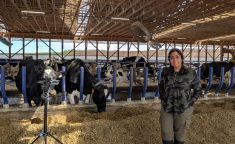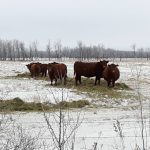Alberta’s dairy industry needs Ottawa to fight for supply management, says the chair of Alberta Milk.

“The biggest issue is continued support for our unique production model — supply management — and the potential impact that a trade deal could have on our system,” said Tom Kootstra.
That means going to bat for supply management as the government negotiates trade deals, including the Trans-Pacific Partnership negotiations that are currently underway.
“Support for supply management — where the cost of production is met by the consumer and the marketplace — is the support I need from the government,” said Kootstra.
“With supply management, the assurance that I will remain economically viable — that I will have a decent return for my dairy product — is there.
“I need a system that allows us to be sustainable.”
Read Also

Farmfair International boosts accessibility with weekend schedule shift
Farmfair International is changing its scheduling format to include the weekend and hopefully attract even more attendees.
The system often comes under fire during trade negotiations, including the Comprehensive Economic and Trade Agreement (CETA) signed last year. At the time, the dairy industry worried increased access to the Canadian market for European Union cheese makers would weaken Canada’s dairy industry.
But the industry isn’t “anticipating any economic consequences from the signing of that trade deal for at least 12 to 18 months,” said Kootstra.
“At this point, that negative impact has not been identified, but the government has committed to compensation for any negative impact that that trade deal has,” he said. “If it comes to pass that there is a consequence for dairy as a result of this CETA agreement, we would expect the government to honour its commitment to adequately compensate us those negative impacts.”
And without that support for supply management, the Canadian dairy industry will become “much more volatile,” he said.
“The pundits and think-tanks think there’s such a thing as a free market, but there is no such thing as a free market, particularly in a perishable product like dairy,” he said.
“If my milk doesn’t leave the farm every 48 hours and find a home, I can’t hold my product until such time as the market gives it a higher value, like you might if you were in the grain business.”















